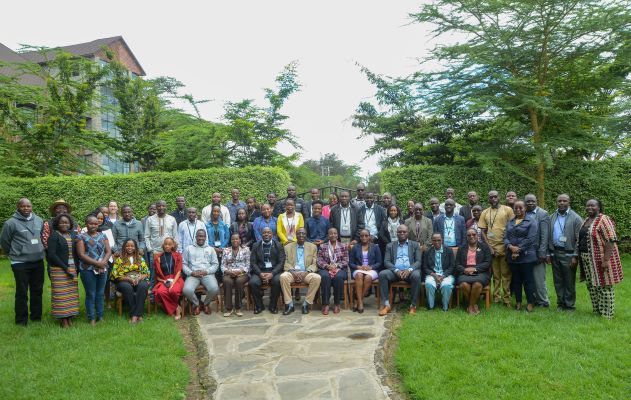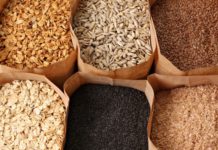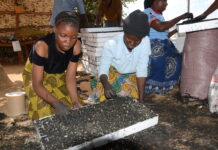The government has urged development partners to support small holder farmers adopt sustainable models of farming, in order to build a resilient food system.
While addressing, Food and Land Use (FOLU) coalition meeting in Naivasha, during the International Biodiversity Day, the PS Eng. Festus K. Ng’eno argued that the war against climate change can be only won if all the various stakeholders integrate biodiversity in the food systems.
“By integrating biodiversity into our food systems, we can combat climate change, maintain ecosystem health, and ensure that future generations have access to a diverse and nutritious food supply. This approach not only supports agricultural sustainability but also enhances livelihoods and promotes equitable growth,” explained Eng Ngeno.
He further, added, “Transforming Kenya’s current food system for better nutrition and health will require a paradigm shift that puts consumer diets at the center of policymaking. As agriculture is by far the dominant sector in Kenya’s food system, such a shift will entail striking a balance between traditional objectives like agricultural productivity growth, export stimulation, and farmer support, on the one hand, and the new responsibility for better nutrition and health for all Kenyans.”
Food systems in Kenya are not sustainable in their current status; they rank as a major contributor to national carbon emissions and continue to contribute to the loss of biodiversity. The COVID-19 pandemic further exposed the fragility of these systems and underscored the urgency of change. Inclusivity and equity must be at the heart of any food systems transformation.
AGRA’s Country Director John Macharia who gave the opening address noted that “As we work towards food systems transformation efforts in Kenya, we must acknowledge the need to work together. I believe we can do this through focusing on several key areas such as adoption of healthier diets and enhanced food safety, enhanced productivity, and improved access to agricultural inputs and mechanization.”
However, one of Kenya’s strengths in addressing these issues lies in its devolved governance structure. Devolution empowers local authorities to tailor solutions to the unique challenges faced by various regions. Recognizing this potential, we must integrate a context-specific approach into our efforts, embracing inclusivity and innovation as vital enablers of food system transformation.
The meeting was attended by the Food and Land Use Coalition partner organizations including; Global Alliance for Improved Nutrition, World Resources Institute and Sustainable Development Solutions Network among 48 other partners.
The 2024 FOLU convening served as a platform for Food Systems and Land Use stakeholders in Kenya, encompassing agriculture, SMEs, policy makers, water management, climate resilience, natural resource management, sustainable consumption, and healthy diets, among others. This years’ FOLU Coalition Wide Meeting tackled a wide array of topics, most notable being;
- The evaluation of the progress in the implementation of the Kenya Food Systems and Land Use Action Plan 2024-2030
- Sharing best practices and lessons learned in sustainable food systems transformation through various pathways.
- How to strengthen partnerships and collaboration among government, private sector, civil society, and other stakeholders.
- The identifying and prioritization of actions for the next phase of the food systems transformation efforts in Kenya.








